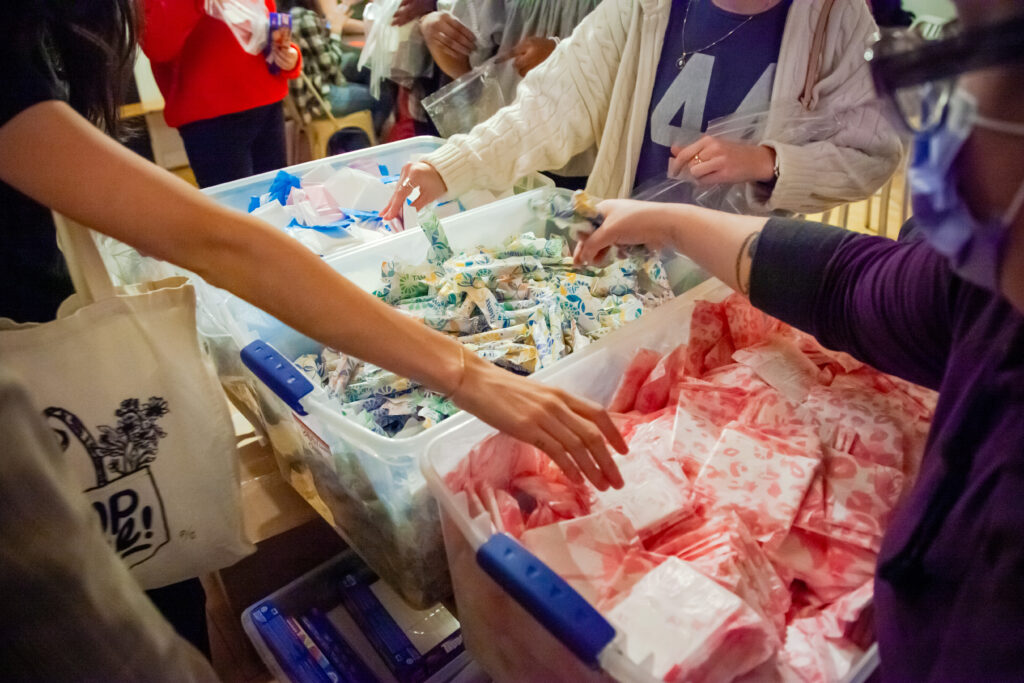
Listen to the full story here:
Canada’s first menstrual equity charity, The Period Purse, held its first period product packing party since 2019 on Nov. 6, gathering dozens of volunteers to assemble nearly 10,000 menstrual care products for youth facing what experts call period poverty — a lack of access to menstrual products.
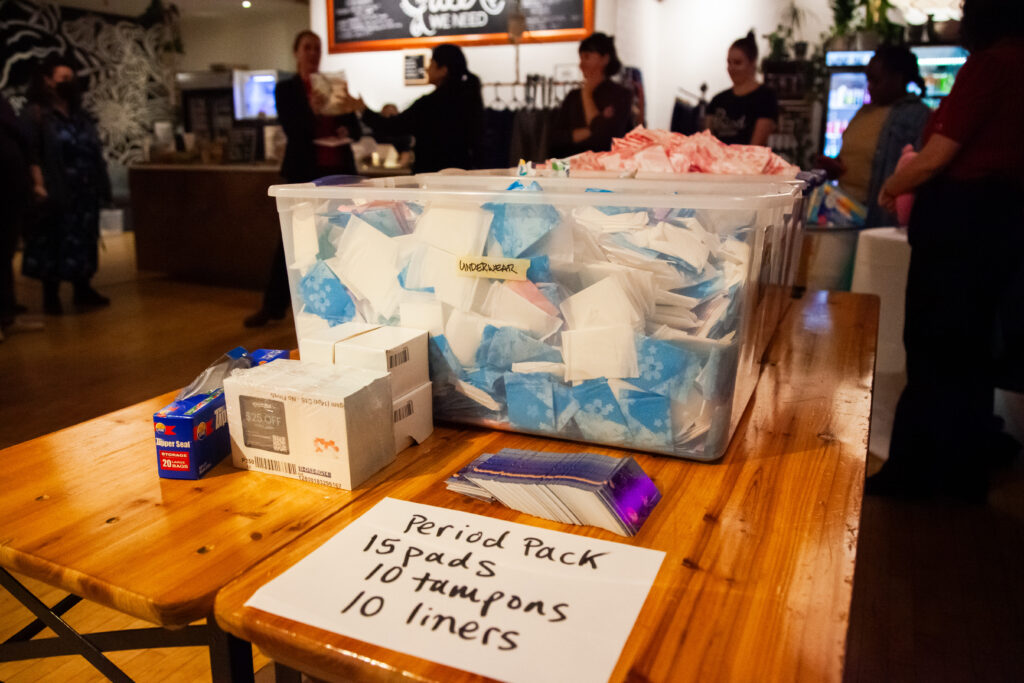
Participants worked together to pack kits containing tampons, pads and liners at Society Clubhouse, a women-owned venue in Toronto’s west end. Each kit was filled with 15 pads, 10 tampons and 10 liners, along with handwritten cards of support. Many attendees also decorated the kits with stickers and messages of solidarity, personalizing each one for the recipients. Some kits included pads and liners, in lieu of tampons.
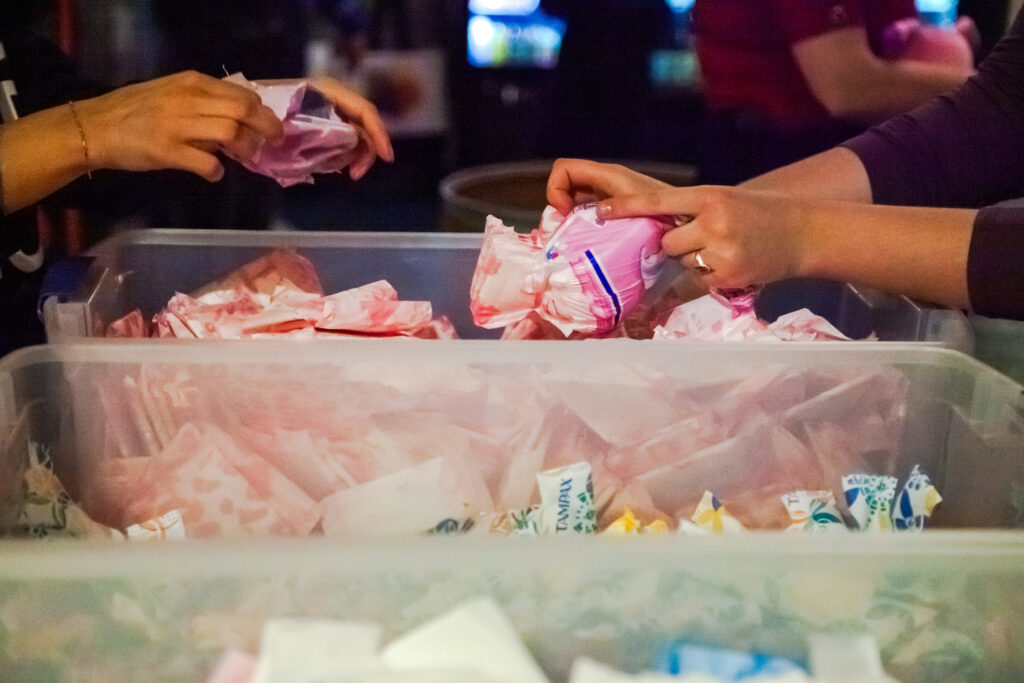
Many at the event told OTR it was not only an opportunity to donate time and resources to a good cause but also a chance to tackle the stigma surrounding menstruation and the emotional weight of current events.
“It’s liberating,” said Rio Salvador, a first-time attendee. “It’s about supporting each other and being part of a community that cares about something natural but still considered taboo.”
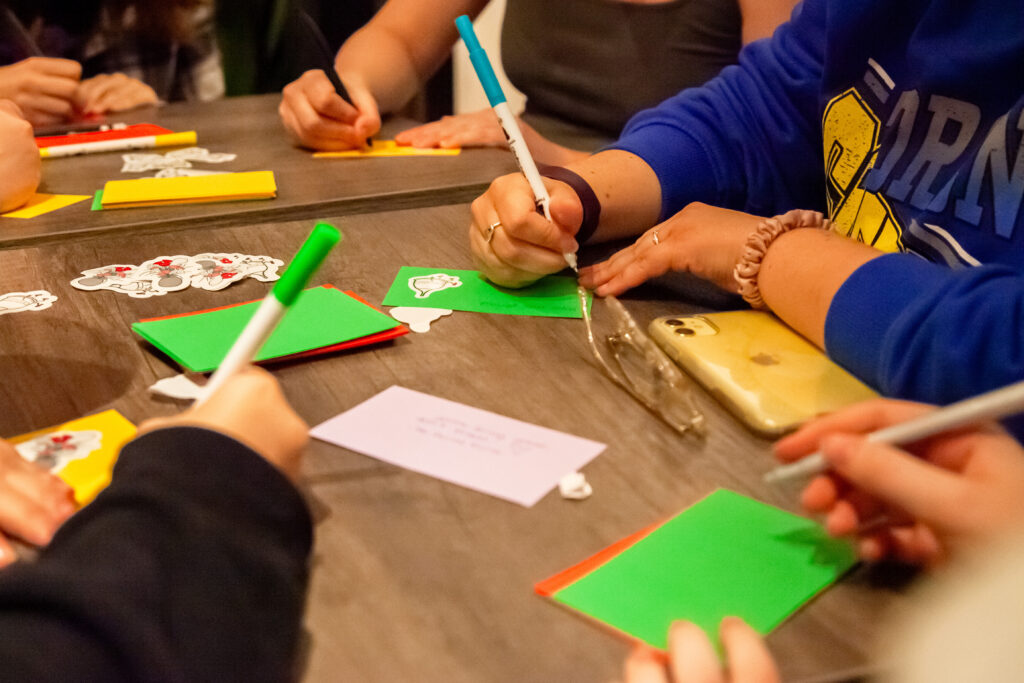
Founded in 2017, The Period Purse has distributed over six million menstrual products to date, providing essential items to people who menstruate but struggle to access or afford them. The organization’s mission extends beyond donations, with a focus on advocacy and education to raise awareness of menstrual equity issues at municipal, provincial and federal levels.
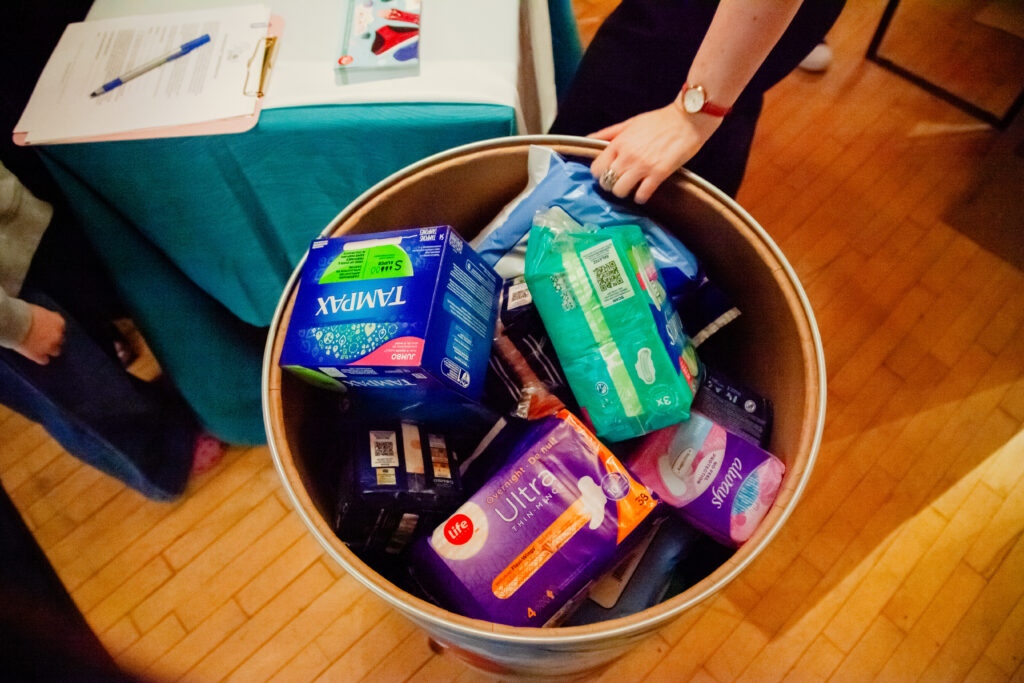
For Tait Gamble, an education facilitator at The Period Purse, packing events like this represent a tangible way to show people the impact of the organization’s work.
“This is a great way for people to see how simple actions can make a big difference,” Gamble said, noting that events like these help bridge gaps in education about menstrual health.
“Seeing the care packages come together really brings the issue to life for people,” she said.
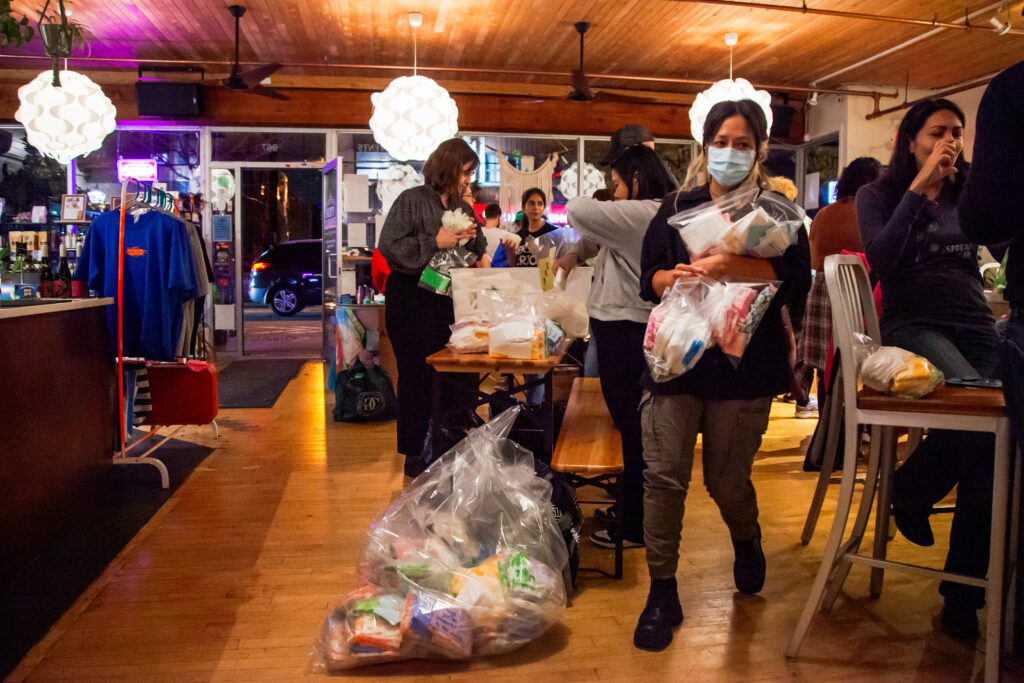
Vikki VanSickle, the group’s education coordinator, says Wednesday’s packing party marked a return to the organization’s roots.
“We started by collecting and donating products,” VanSickle said. “But over time, we’ve expanded to advocate for policy change. Now, more than ever, menstrual equity is part of a broader conversation about reproductive rights.”
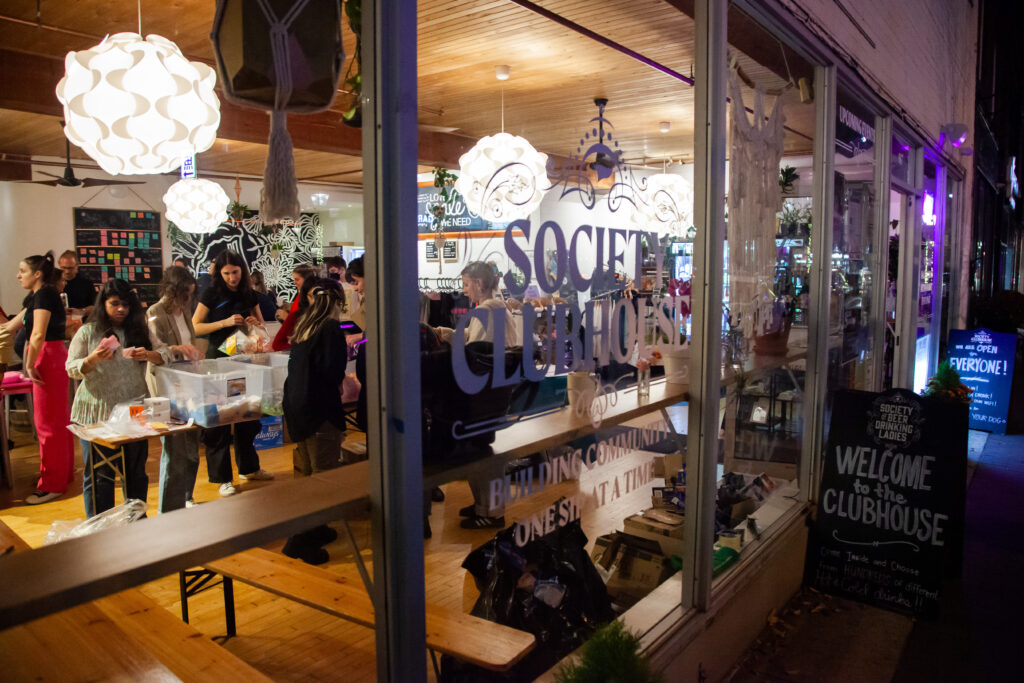
VanSickle says she wasn’t optimistic about the event’s turnout the morning of.
Participants woke up to the news that former U.S. president Donald Trump — who has several convicted charges related to violence against women and sexual misconduct — was reelected.
Still, VanSickle said she was pleasantly surprised by how many people came out to pack products, taking part in a different kind of political action.
“I was happy that I was going to pack period products tonight.” she said. “I feel like I’m doing the thing I want to be doing, which is making a difference and being with people.”
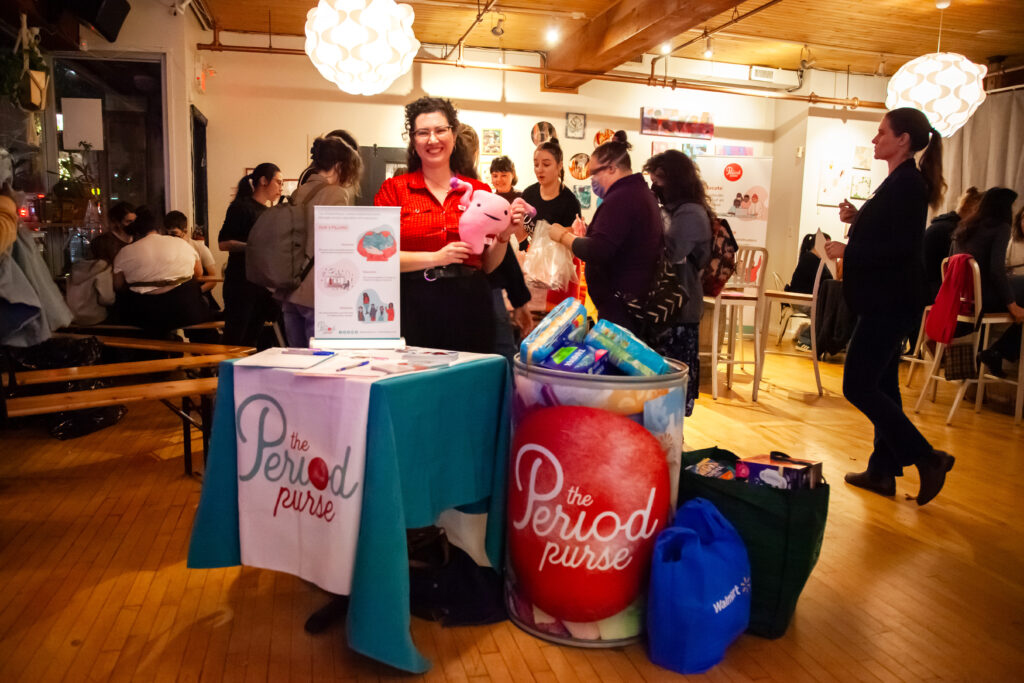
The organization also focuses on reducing the stigma surrounding menstruation and closing gaps in menstrual equity.
“We teach that periods are genderless,” said VanSickle. “Sometimes people think if you don’t menstruate, it doesn’t affect you. But menstrual equity is an issue for everyone, whether directly or indirectly.”
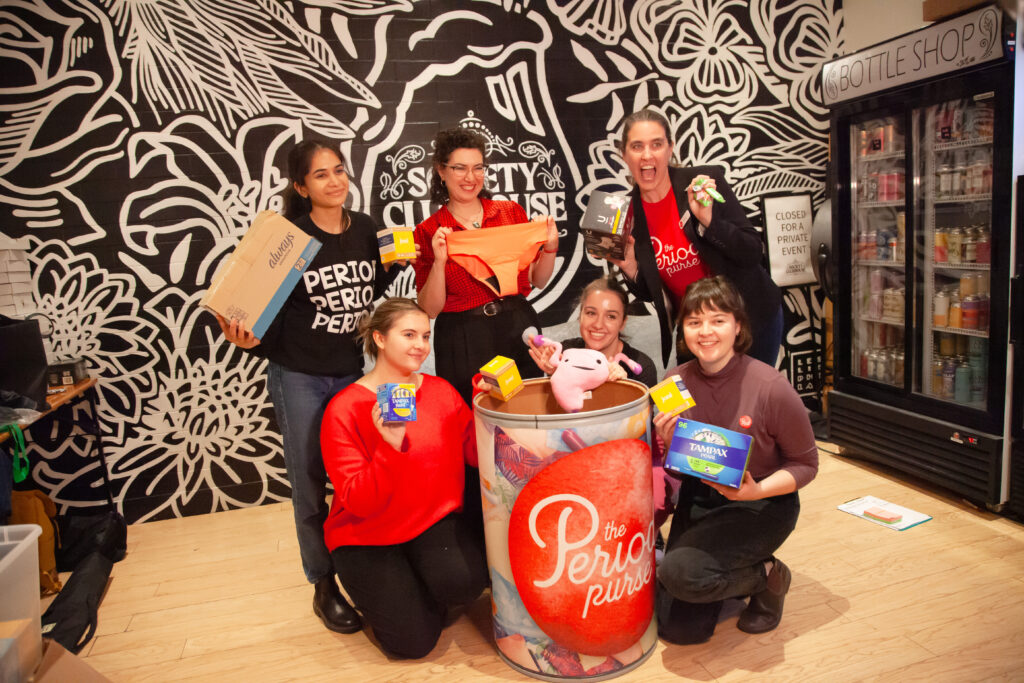
Salvador, who was diagnosed with endometriosis later in life, says the struggles of managing a chronic condition while dealing with the emotional and physical toll of menstruation is tough.
She also noted the financial burden menstrual products can place on individuals, particularly those without access to adequate healthcare and social services — as the cost of living crisis in Canada continues to worsen, especially in the Greater Toronto Area .
“The cost of pads, tampons and pain relief adds up,” she said. “It’s a hidden expense that many people can’t afford.”
Once the supply of zipper seal bags and products was depleted, volunteer and engagement coordinator Kristy Van Hoven announced that within a few short hours, attendees had managed to assemble 282 packs, each containing 35 individual products. Van Hoven drove the completed packages to a nearby youth organization, which cannot be named for privacy reasons, that same night.
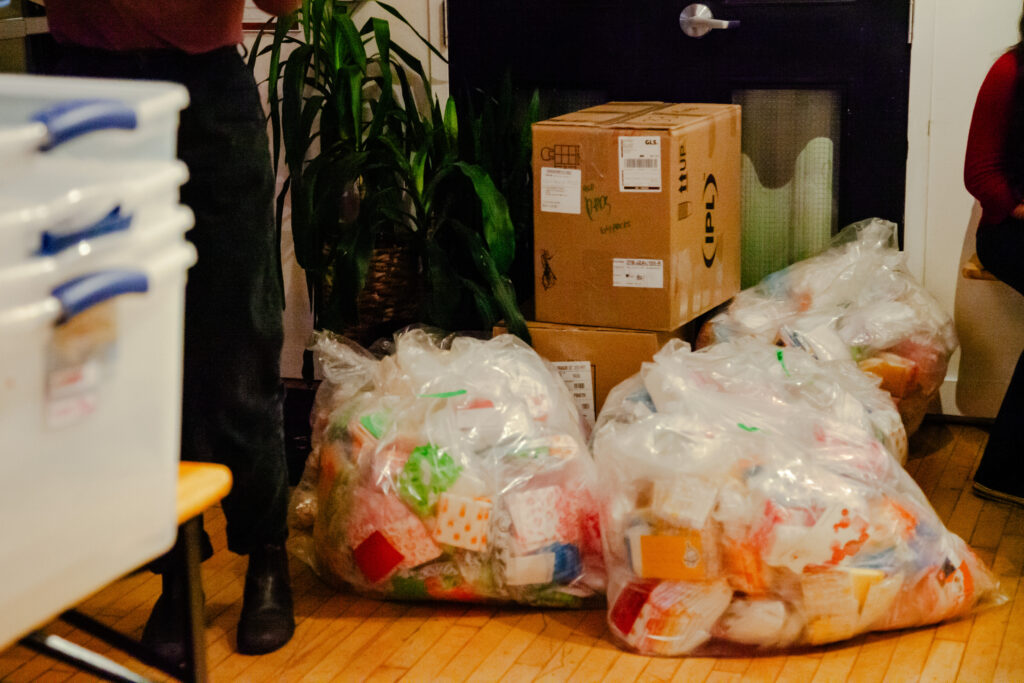
Salvador said she was glad to discover the event last minute and that it was the “perfect” way to spend her evening. “While packing, I was thinking of my nieces, my loved ones and my future children.”
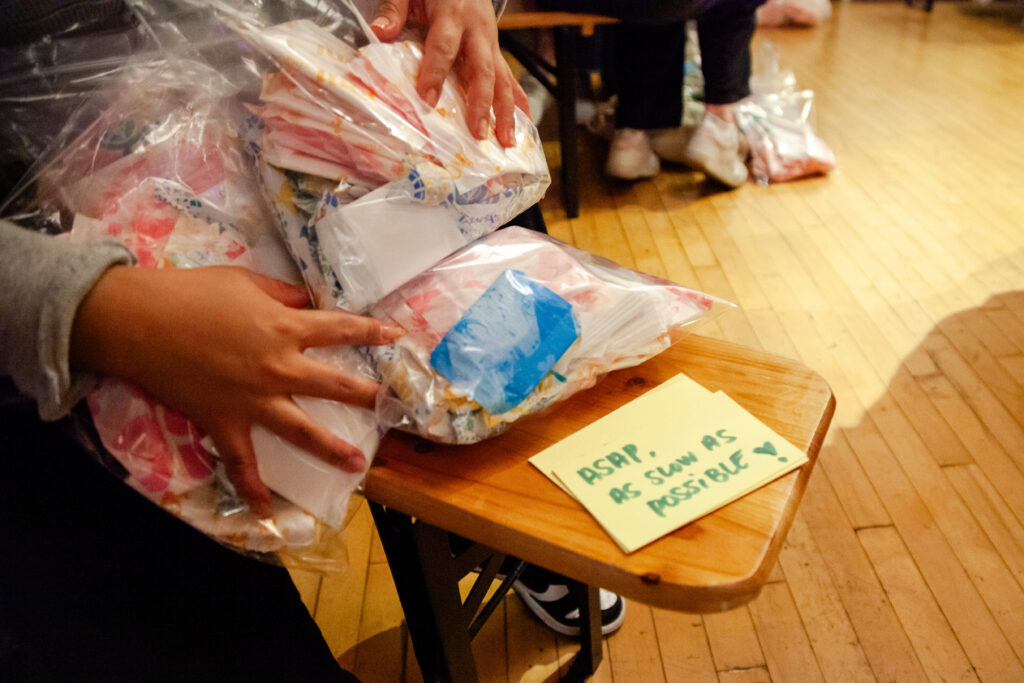
Kinza Zafar (she/her) is a reporter for OTR, Fall 2024.
This article may have been created with the use of AI tools such as Google Docs, Grammarly, and/or Otter.ai for transcription.
